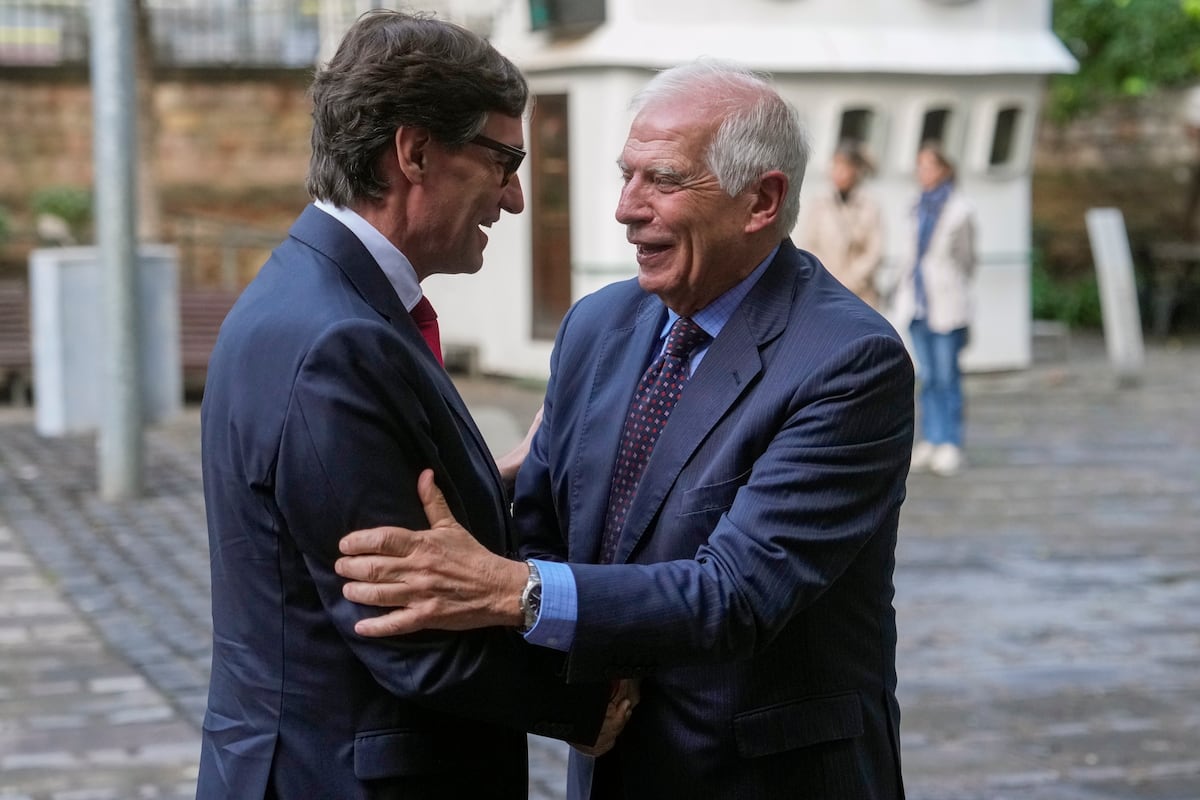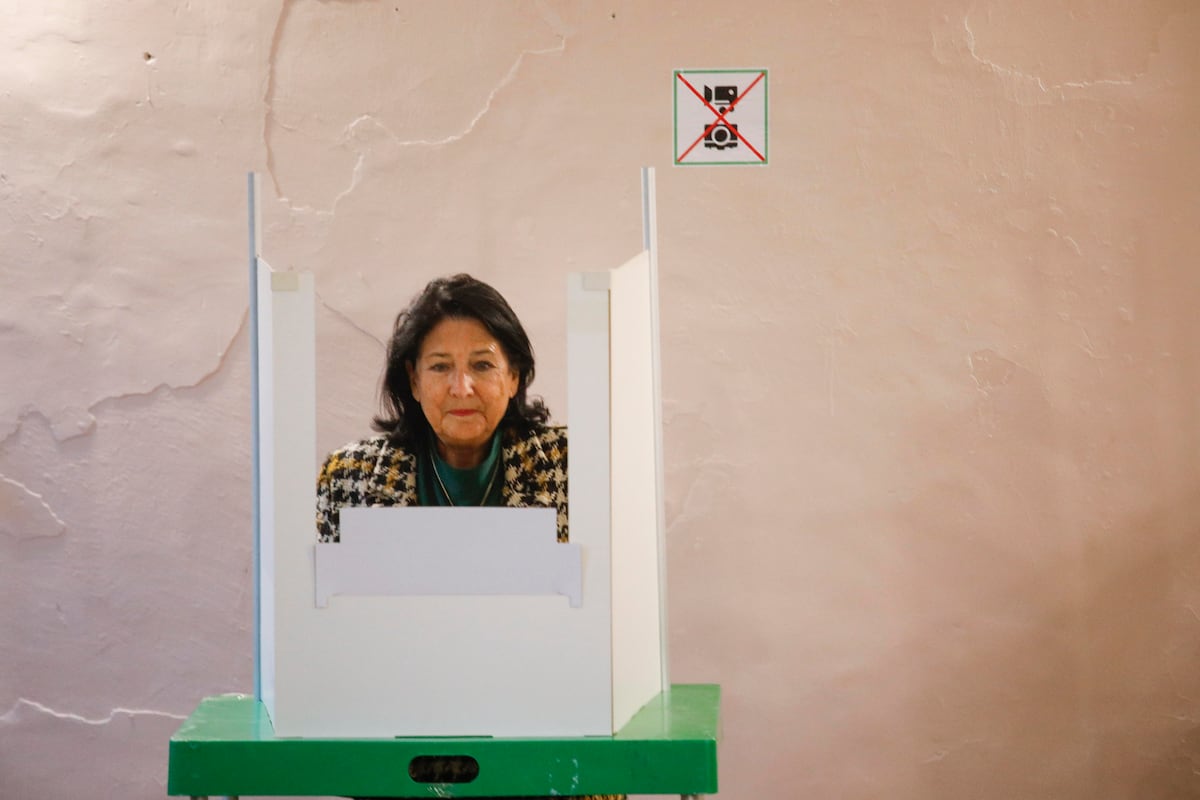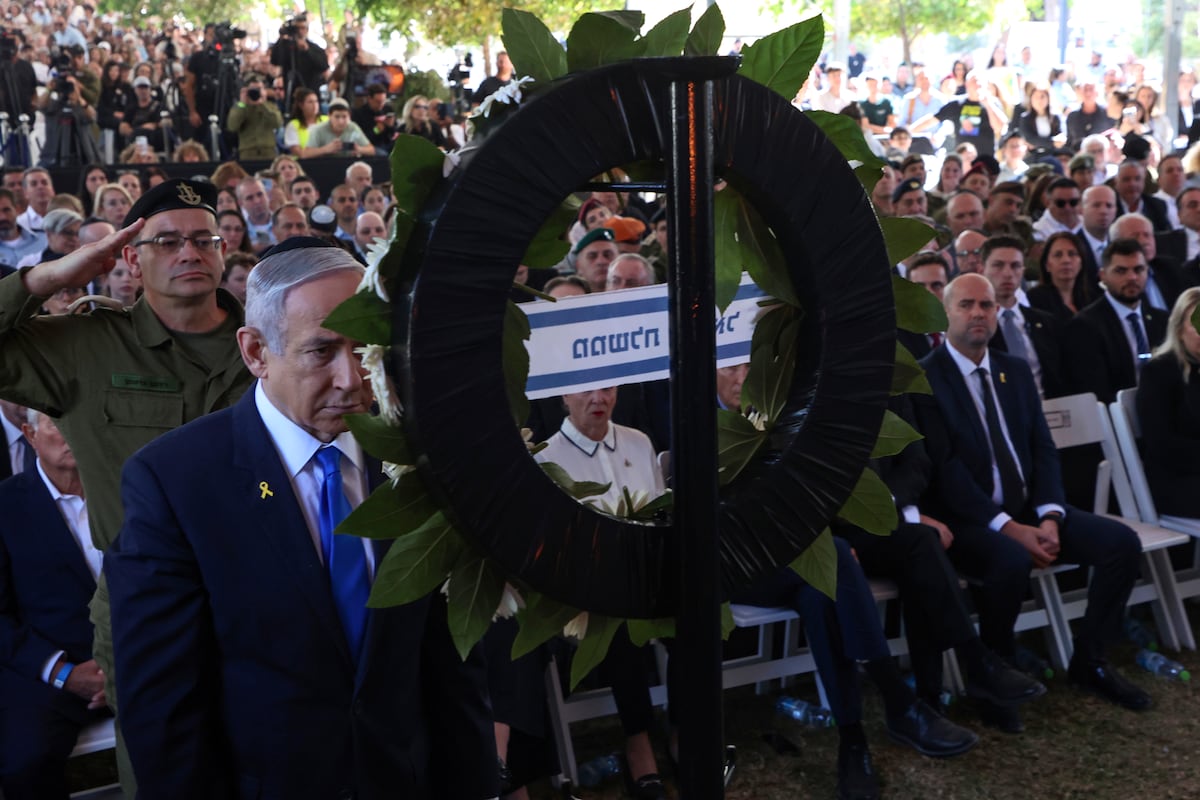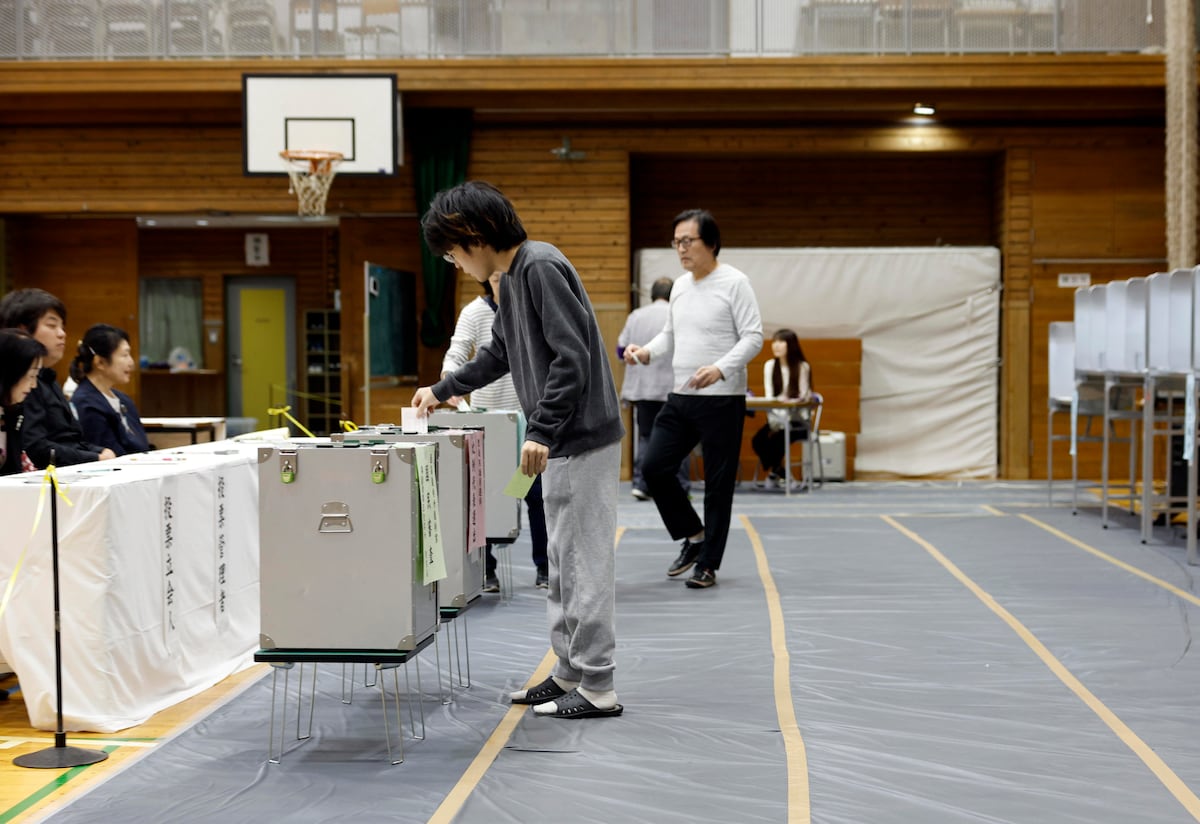Josep Borrell, High Representative of the EU for Foreign Affairs and Security Policy, called this Sunday to recognize the coexistence of a Palestinian State and an Israeli State as the only possible solution to the war in the Middle East. At the closing of a conference on this conflict organized by the European Institute of the Mediterranean (IEMed) and the European Union, the Spanish politician criticized those who “denigrate” that path, but do not put another alternative on the table. “Both have to recognize that they have to share the same land,” he added. “The war will only stop when the international community is ready to take coercive measures,” he said, later recalling that, for the moment, force is only through diplomatic means.
“When someone says that they do not want the two-state solution, they have a moral obligation to say what their solution is,” Borell assured the representatives of thirty countries that the IEMed met this weekend in the Catalan capital. This is a direct allusion to the Israeli Prime Minister, Benjamin Netanyahu, embarking on escalating the war response. Those opposed to the two-state solution, he added, “do not say anything, they deny one way but do not propose another.” And it has even gone further: “They are already implementing another one. “They don’t name, they do,” he said in reference to the invasion of Gaza territory and the use of chaos for the advance of Jewish settlers.
Borrell has asked to “put aside rhetoric” in the search for a solution to the conflict in Gaza and the escalation of the Arab-Israeli clash throughout the Middle East, although he has accepted that the diversity of sensitivities between States makes At the moment of truth, impact measures cannot be carried out. “When we move from words to actions, divisions arise,” he said after referring to the dissent over the conditions for a truce.
He has also put his finger on the information blockade imposed on the ground, which he has described as the “greatest journalistic blackout of all time.” This, he has defended, not only contributes to the international community not being able to truly appreciate the humanitarian crisis that is being experienced in the Gaza Strip due to Israel’s war response. Furthermore, it limits the ability to bring justice to the crimes that are being committed. “Nothing that happened before October 7 [el ataque de Hamás a Israel] “I could justify massacres and the kidnapping of civilians, and nothing can justify the annihilation of Gaza and its people,” he recalled.
The polarization regarding the conflict, the high European official has assured, has led to a profound lack of knowledge of the other, since at the center there is a fight of crossed stories that show a stereotype of Jewish supremacism or Islamic extremism. “To achieve peace, we need to appreciate that behind this distorted image of the other there is a desire to live in peace. The voices in Israel calling for an end to the war must be heard in the Arab world. And in Israel the efforts of the Arab world to achieve peace must be known,” he exemplified.
The president of the Generalitat, Salvador Illa, and the counselor of the European Union and Foreign Action, Jaume Duch, also participated in the closing of the conference. The PSC leader has also assured that he will support the Minister of Foreign Affairs, José Manuel Albares, “condemning all attacks of violence and requesting an immediate ceasefire.” He has also advocated for an end to the killing of civilians and compliance with UN resolutions. Duch, for his part, has assured that achieving peace in the Middle East “would be the greatest success achievable right now, when 30 years of the Barcelona Process will soon be completed.” The three, according to sources from both governments, have also discussed the issue of the official status of Catalan in the European institutions.
Precisely to rethink and update this international coordination mechanism between all the Mediterranean countries that was born in 1995, the Catalan capital will also host this Monday the ministerial summit of the Union for the Mediterranean (UfM), which brings together the Foreign representatives of the EU with those of the rest of the area of influence of the international organization. Albares and the general secretary of the UfM, Nasser Kamel, will host a meeting that comes at a delicate moment. Israel has not sent a delegation and representing Palestine will be its number two diplomat, Varsen Aghabekian.






